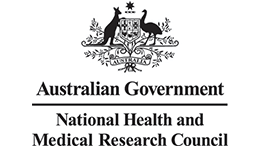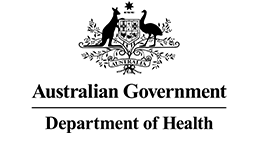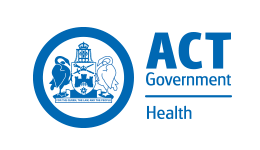Healthy public policy to support healthy and equitable eating

Status completed
Start Date
End Date
The food system, the social system and individual factors all interact in a complex manner to promote or hinder inequities in healthy eating.
This project examined the different parts of the food system in Australia to identify what is needed to create a healthy and equitable eating – or HE2 – system in Australia.
Introduction
The project provides an evidence base for what can be done to improve nutrition equitably with the aim of ensuring nutrition and health equity goals are integral to federal and state cross-government policies and programs.
The framework provides plausible policy actions across each of the HE2 policy domains that have potential to advance public health nutrition equitably.
Our research impact
Featured project resources
-
Healthy public policy to support healthy and equitable eating: The HE² project
Resource category:Findings Brief
Date -
Food, governance and equity
Resource category:Videos
Date
About
A systems approach to healthy and equitable eating
Project titleWhat is the issue?
Typically, people with less money, less education, insecure working conditions and poor living conditions are more likely to have higher levels of diet-related diseases. What, when and how much different social groups eat is determined by a complex system of interconnected factors. The food system, the social system and individual factors all interact in a complex manner to promote or hinder inequities in healthy eating.
The food system – including production, processing, manufacturing, distribution, marketing, retail and procurement – affects dietary behaviours by influencing consumer food environments and thus the availability, affordability, physical accessibility, and acceptability of different foods.
People’s dietary behaviours are also a response to the daily living conditions in which they are born, live, learn, work and age – the social determinants of healthy eating. These social determinants include income, employment, social protection, education, transport, planning, housing, social exclusion, cultural norms and gender. Individual levels factors also play a role in affecting what people choose to eat and may include but are not limited to knowledge, attitudes, stress, and social support.
The prevention of diet-related chronic diseases and obesity requires policies and actions that aim to improve the availability, affordability, accessibility and acceptability of healthy food, and decrease the availability, affordability and acceptability of unhealthy food. Policy coherence is needed to support and reinforce healthy food choices or one policy may negate another policy’s effectiveness. For example, urban planning policy may support the proliferation of fast-food outlets in low-income neighbourhoods or near schools, undermining policy aimed at promoting health.
When tackling a complex issue such as inequities in healthy eating, the tendency is often to oversimplify the problem and the solution, rather than address the many interacting factors that affect consumption of a healthy diet among all social groups.
To this end, we need an evidence base that takes a systems approach and that can guide coherent policy development and implementation across a range of policy areas (including health, education, social and urban planning), which directly and indirectly affect inequities in healthy eating.
How did the project address the issue?
This project examined the different parts of the food system in Australia to identify what is needed to create a healthy and equitable eating – or HE2 – system in Australia.
The HE2 project had five aims:
- Develop a systems-based framework to clarify and communicate the interconnections between different policy domains and Healthy and Equitable Eating (HE2)
- Explore the quantitative modelling of the interconnections between key policy subsystems and HE2
- Establish the Healthy and Equitable Eating (HE2) framework for addressing the social determinants of inequities in healthy eating
- Test the HE2 framework using Australian federal and state level government policies
- Identify barriers and opportunities to cross-government action that takes a systems approach to the pursuit of HE2 goals.
What were the outcomes?
The project provides an evidence base for what can be done to improve nutrition equitably with the aim of ensuring nutrition and health equity goals are integral to federal and state cross-government policies and programs.
Relevance for practice
The framework provides plausible policy actions across each of the HE2 policy domains that have potential to advance public health nutrition equitably. Our participatory approach was useful in engaging policy actors across a range of domains, and in building capacity for this work in Australia.
Bringing together a range of experts in the field of healthy eating enabled the identification of many connections between many factors that influence equity in healthy eating. It allowed us to engage people from across government departments – a critical first step in tacking the complex, systems-wide issue of inequities in healthy eating.
Resources
-
Healthy public policy to support healthy and equitable eating: The HE² project
Resource category:Findings Brief
Date -
Food, governance and equity
Resource category:Videos
Date
Publications
Other publications
Presentations
- Pescud M, Friel S, Lee A, Sacks G, Meertens B, Carter R, Cobcroft M, Munn E, Greenfield J: The Healthy and Equitable Eating (HE2) Policy Framework for Addressing the Social Determinants of Inequities in Healthy Eating, World Congress on Public Health, Melbourne. April 2017.
- Friel S. World Leaders Dialogue – Exploring systems approaches to chronic disease prevention. Working with different systems to develop a national healthy and equitable eating food policy. World Congress on Public Health, Melbourne. April 2017.
- Pescud M, Malbon W, Friel S. HE2: A systems approach to healthy and equitable eating. Heart Foundation, Cardiovascular Health Research Symposium, ACT. May 2016
- Malbon E. Food trail. Mapping the factors impacting equity in the distribution of healthy food. The Australian Prevention Partnership Centre, Investigators Forum. 20 October 2015. Melbourne.
- Professor Sharon Friel’s presentations to the Prevention Centre Investigators’ Forum, October 2014: Food, governance and equity (PDF, 1MB); Social determinants of health (PDF, 821KB)
Newsletters
- Food for thought, project newsletter. Edition 1, August 2015.
- Food for thought, project newsletter. Edition 2, December 2015.
- Food for thought, project newsletter. Edition 3, May 2016.
People
Lead investigators
-
Professor Sharon Friel Professor Sharon Friel has finished working with the Prevention Centre.
Australian National University
Project team
-
Professor Louise Baur AM
The University of Sydney -
Professor Rob Carter Professor Rob Carter has finished working with the Prevention Centre.
Deakin University -
Megan Cobcroft Megan Cobcroft has finished working with the Prevention Centre.
NSW Ministry of Health -
Professor Amanda Lee
University of Queensland -
Elizabeth Munn Elizabeth Munn has finished working with the Prevention Centre.
NSW Health -
Dr Melanie Pescud Dr Melanie Pescud has finished working with the Prevention Centre.
University of Western Australia -
Professor Lucie Rychetnik
The University of Sydney -
Professor Gary Sacks
Deakin University -
Professor Emeritus Alan Shiell
La Trobe University -
Beth Thomas Beth Thomas has finished working with the Prevention Centre.
Heart Foundation

















